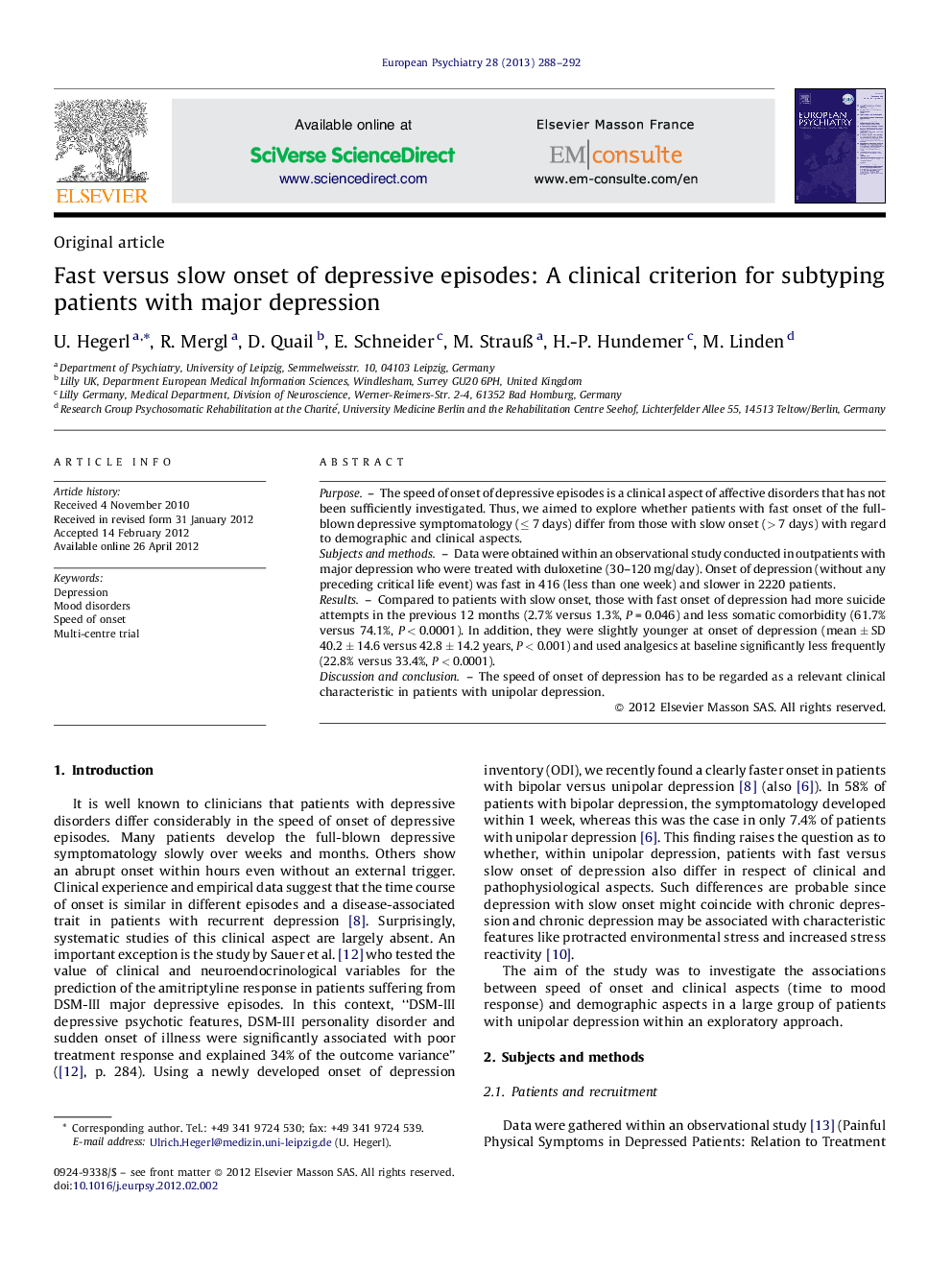| Article ID | Journal | Published Year | Pages | File Type |
|---|---|---|---|---|
| 6229353 | European Psychiatry | 2013 | 5 Pages |
PurposeThe speed of onset of depressive episodes is a clinical aspect of affective disorders that has not been sufficiently investigated. Thus, we aimed to explore whether patients with fast onset of the full-blown depressive symptomatology (â¤Â 7 days) differ from those with slow onset (> 7 days) with regard to demographic and clinical aspects.Subjects and methodsData were obtained within an observational study conducted in outpatients with major depression who were treated with duloxetine (30-120 mg/day). Onset of depression (without any preceding critical life event) was fast in 416 (less than one week) and slower in 2220 patients.ResultsCompared to patients with slow onset, those with fast onset of depression had more suicide attempts in the previous 12 months (2.7% versus 1.3%, P = 0.046) and less somatic comorbidity (61.7% versus 74.1%, P < 0.0001). In addition, they were slightly younger at onset of depression (mean ± SD 40.2 ± 14.6 versus 42.8 ± 14.2 years, P < 0.001) and used analgesics at baseline significantly less frequently (22.8% versus 33.4%, P < 0.0001).Discussion and conclusionThe speed of onset of depression has to be regarded as a relevant clinical characteristic in patients with unipolar depression.
